Some advantages of project work is that it makes school more like real life. In real life, we don't spend several hours at a time listening to authorities who know more than we do and who tell us exactly what to do and how to do it.
What do the experts say about project-based learning?
Seymour Papert, famous expert on Artificial Intelligence, mathematics, and the education of children, states, "We teach numbers, then algebra, then calculus, then physics. Wrong! Start with engineering, and from that abstract out physics, and from that abstract out ideas of calculus, and eventually separate off pure mathematics. So much better to have the first-grade kid or [tag-self]kindergarten[/tag-self] kid doing engineering and leave it to the older ones to do pure mathematics, than to do it the other way around."
Bruce Alberts, cell biologist and president of the National Academy of Sciences, believes, "Everybody is motivated by challenge and solving problems, and we don’t make use of that in schools enough. [tag-tec]Project-based learning[/tag-tec] gives everybody a chance to sort of mimic what scientists do, and that’s exciting. And it’s fun if it’s done well."
Sylvia Chard, professor of Elementary Education at the University of Alberta, Canada and author of Engaging Children’s Minds: The Project Approach
says, "One of the major advantages of project work is that it makes school more like real life. In real life, we don’t spend several hours at a time listening to authorities who know more than we do and who tell us exactly what to do and how to do it. We need to be able to ask questions of a person we’re learning from. We need to be able to link what the person is telling us with what we already know. And we need to be able to bring what we already know and experiences we’ve had that are relevant to the topic to the front of our minds and say something about them." Chard doesn’t like the term “project-based” because she says it focuses on projects as opposed to other learning methods. "Younger children will play and explore as well as engage in projects," she states. "Older children’s project work will complement the systematic instruction in the program."
What does the research say about project-based learning?
Research reports say that students engaged in project-based learning improve their test scores, reduce school absences, and have fewer disciplinary problems. A 1997 study of two schools in the U.K., by Jo Boaler from Stanford University, showed that one school that used project-based learning and one that used traditional, direct instruction, had large differences in understanding math and in the test results in mathematics. The project-based learning students did much better on math problems requiring analysis and those requiring memorization of a rule or formula. Three times as many students at the project-based learning school received the top grade.
A 1992 study of students in Tennessee, USA found that students using project-based [tag-ice]learning[/tag-ice] performed better in several academic areas. The study was done by a Technology Group from Vanderbilt University and studied skills in basic math, word problems, planning, attitudes toward math, and teacher feedback. This study may be found in Educational Psychologist, 27 (3): 291-315.
What kinds of projects do children participate in?
The types of projects children participate in are endless, as are their excitement and enthusiasm.
- Studies of illnesses and treatments, based on a classmate’s illness. Students research, visit a hospital, interview doctors and patients, and write reports.
- A project in which students build kites and then write stories and poems with kite themes. They design their own kites and make them. They study the role of kites in cultural celebrations.
- A project in which a river is studied. Students measure the pH balance of the water, observe the types of plants and animals living in the river, and determine how best to keep the environment clean and the plants and animals healthy.
- Raising chickens. Building coops, caring for the birds, collecting and selling eggs, and studying bird reproduction.
- Writing autobiographies. Studying their ancestors and the countries from which they come.
- Recreating famous art works and studying the artists’ lives.
- Experimenting in cooking and writing a cookbook. Studying nutrition.
- Creating dioramas or murals of prehistoric times.
- Planting and growing a garden and planning how to use the foods grown.
- Studying a country, such as Mexico. Making a mural map, creating a piñata, serape, and maracas, learning Spanish dances, recreating Mexican art and crafts, writing to pen pals in Mexico, building models of pyramids of the Aztecs, creating a timeline of Mexican history, studying the Aztec calendar, researching present day problems, planning a trip to Mexico.
- Creating a supermarket and using real money to “buy” and “sell” food.
- Designing a “bridge” with masking tape and straws which must support a stapler, between two tables, without breaking.
- Developing observation and descriptive skills by observing common objects and describing them in words. Creating poetry, using the descriptions.
Bio for Ann Bowers
Ann Bowers has been an elementary school teacher, in kindergarten through 8th grade, for 20 years. She was a Bilingual Education Grant Project Coordinator for seven years and a school principal for seven. She has a B.A. in English, an M.A. in Education, and holds California Life Teaching Credentials and specialist credentials in Remedial Reading and Teaching English as a Second Language. She is retired and has started a second career as a freelance writer.
No part of this article may be copied or reproduced in any form without the express permission of More4Kids Inc © 2006



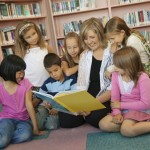

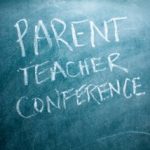
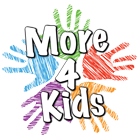
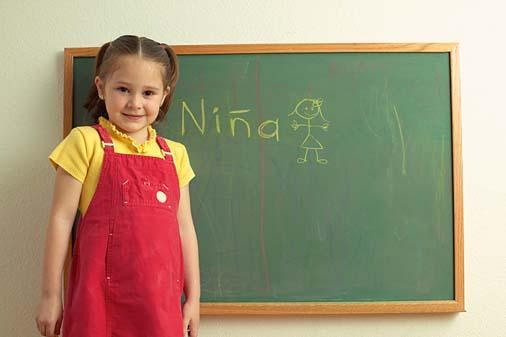


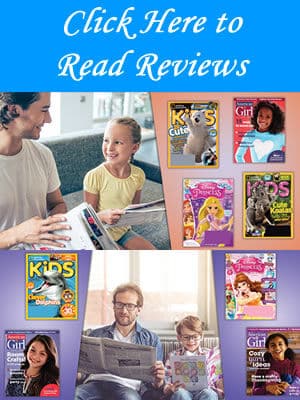
Add Comment